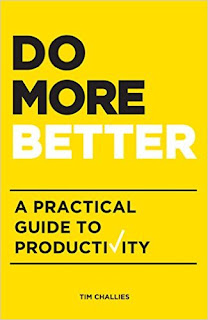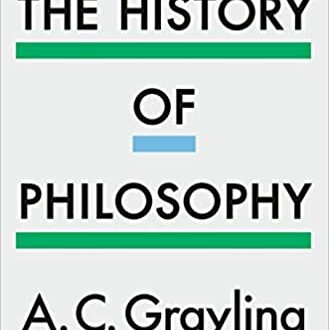I read very few practical books. I read these kind of books in situations when I really need them. Doing a Ph.D is one of those situations.
At this moment in my life I have so many pieces on my plate yet no external motivating factors to get me to do them. For example, I have a stack of books to read within a three month period. I can read them when I like and in whatever order I like. So I pick up one that I am naturally interested in reading and crack on. It turns out that I approach tasks like a scatter gun. I am either trying to do too many at the same time or I am running on zero motivation and, as a consequence, achieve feeble results on a given day.
Challies’ book is neither complex nor full of novel, exciting ideas. But I’m not looking for exciting, I’m just looking for help. And help it is.
Challies begins with an obvious but vital point: to be productive you need to have purpose. This sounds obvious, but if you’re like me sometimes the only purpose I actually think about is the purpose of getting stuff done. To have a purpose one needs first of all a Christian purpose that all Christians have for everything they do. Challies reminds us that this is the good of others and the glory of God. Second, we need a personal purpose, something God has uniquely given us for our work. This helped crystalize some thoughts about why I am doing what I am doing.
Challies’ skill lies in showing you how he does it. What roles he has in life and what responsibilities they entail. Once you know why you do what you do and what it is exactly that you are supposed to be doing, Challies helps you to figure out how to make it happen. His answer is to use tools, specifically a task manager, a calendar, and an information manager. He is surprisingly candid about which tools and how to use them. I found this helpful and now use todoist.com according to Challies’ instructions.
One of the struggles Ph.D students have is motivation. If it isn’t coming from you then you won’t have any. No one checks up on you and no one will say “well done… keep going.” You are basically on your own with your books and computer. Sometimes Ph.D students wonder if they have produced anything at all during a day’s work. Sometimes I read something for a day and don’t understand it. I know that I could get away with checking the book of my list and moving on to the next one, but this is not a Bachelor’s. So I have to read a bunch of other stuff about the topic and then come back and re-read the book. There are some books and journal articles I have had to read several times just to scratch the surface (just look up any article by Kit Fine for an example of this). To do this requires vast reserves of motivation. Here is what Challies says about it:
Motivation, like the moon, waxes and wanes. At times it is full and bright; at times it seems hidden altogether. Motivation gives the desire and energy to begin making changes in your life, but it cannot sustain them. However, this does not mean you cannot be productive even when motivation is low. As many have pointed out, motivation gets you started, but habit keeps you going. You need to use those times of high motivation to build habits and to embed those habits in a system. That way when motivation wanes, the system will keep you going.
These are wise words. If your motivation is waning and you don’t have habits to keep you going Challies book will do the trick.



